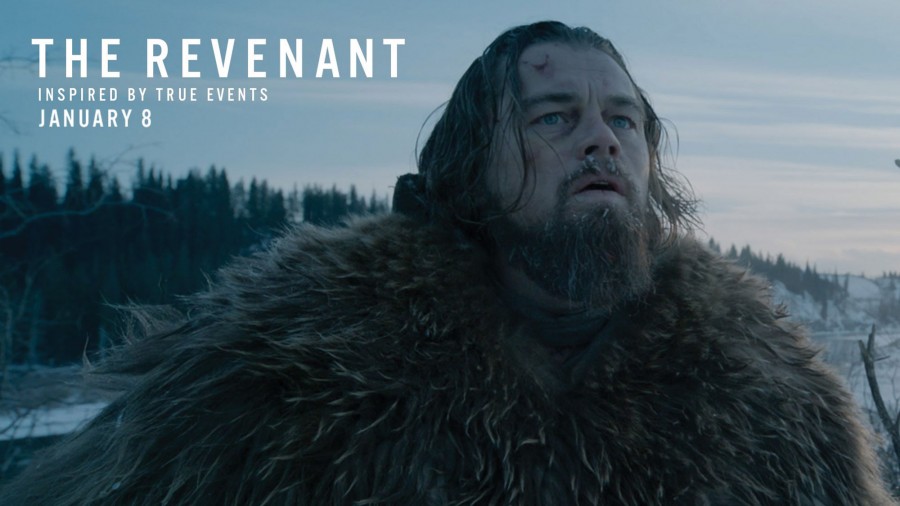Review: The Revenant
January 13, 2016
The newest Leonardo Dicaprio and Alejandro González Iñárritu film “The Revenant” is already garnering critical acclaim and accolades—it won three Golden Globes for Best Leading Actor, Best Director and Best Drama. The film is a great achievement and deserves this recent critical recognition—mostly.
“The Revenant” is the story of frontiersman Hugh Glass, played by Dicaprio, who is on a fur trading expedition in the 1820s. After suffering intense injuries in the wild, Glass is left for dead by his partners and begins a revenge quest for the men that left him. The story is fairly simple, and during the second act while Glass is recovering, the film is very repetitive and somewhat slow. This is likely intentional, to emphasize the length and difficulty of the protagonist’s recovery, but for many viewers this repetition will only add to the lengthy runtime. Also contributing to a long runtime are the many dream sequences that Glass has during his recovery. They often don’t make very much sense, and come off as pretentious. Rather than adding depth to the story, the sequences only add time to the movie’s length.
Though Glass’s initial enemies are his former partners, the much greater adversary in the movie is nature. Taking place in western America during the harsh winter, Glass must trek through freezing temperatures for the entire movie, all while trying to recover from his critical injuries. The movie depicts both nature and man’s violence brutally, and is completely honest and unrestrained in these domains.
The film is extremely realistic, in large part due to an incredibly impressive achievement in directing by Iñárritu. Much like his style in last year’s “Birdman,” Iñárritu draws out long, continuous shots sometimes lasting upwards of five minutes. In certain scenes, this is especially impressive because there are many elements in the foreground and background that had to be timed perfectly in those single takes. Iñárritu and his cinematographer also chose to shoot the entire movie using only natural light, meaning there would often be only a 90-or-so minute window each day during which they could capture a particular sequence. This bold and unique shooting choice certainly paid off, as the film is absolutely beautiful with magnificent cinematography. Some of the shots composed in the movie are utterly amazing, and unlike anything in any other movie this year.
The acting in the film is terrific. Dicaprio is possibly the best he’s ever been, giving what is definitely one of the strongest performances of the year. His role includes very little dialogue, but he still manages to convey everything the audience needs to know about his character at any given moment. His complete commitment to this role is clearly evident in the film, and he is very deserving of any awards that may come his way. Also great in the movie are Tom Hardy and Domhnall Gleeson, who both manage to hold their own next to the great Dicaprio.
“The Revenant” is one of the most brutal and realistic films of the year, and one sequence especially involving a bear attack is one of the most intense scenes of all time. The overall filmmaking of the movie is very impressive and respectful, and Iñárritu certainly deserves accolades for his directing as well as Dicaprio for his acting. “The Revenant” is a great film, however with a few flaws, it is not the definitive best film of the year.
Runtime: 2 hours 36 minutes
Rated: R
Rating: 4.5 out of 5 stars



















![Movie poster for '[Rec]" (2007).](https://www.lionnewspaper.com/wp-content/uploads/2023/04/rec-640x900.jpg)


